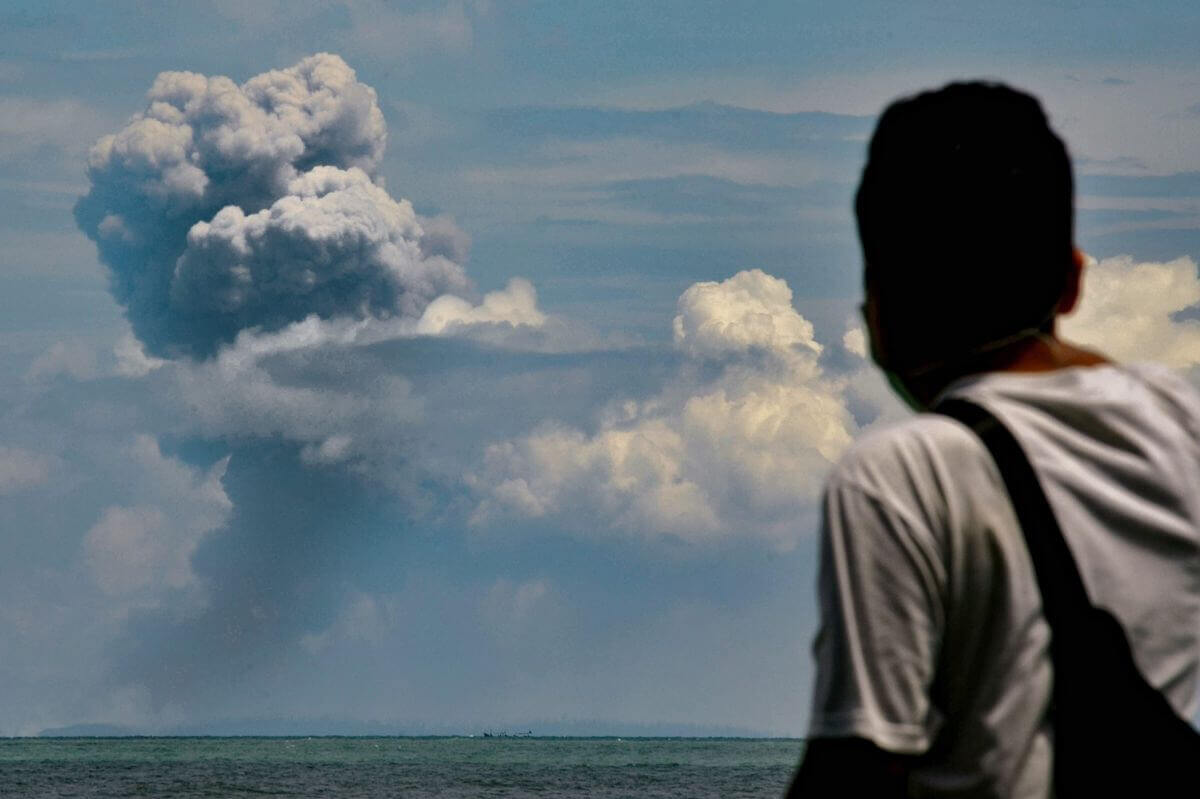Indonesia’s Anak Krakatao volcano, whose last great eruption in December 2018 triggered a deadly tsunami, spewed a column of ash around 500 meters (1,640 feet) into the sky in the longest eruption since the explosive collapse of the island two years ago, scientists said Saturday.
The volcano, which is located in the Sunda Strait between the Indonesian islands of Java and Sumatra, has been continuously erupting since Saturday morning. ‘Loud rumbles’ were reportedly heard in the nation’s capital, Jakarta, shortly after the volcano erupted. Coincidentally, Jakarta was placed under lockdown on the same day.
Indonesia’s volcanology office reports that the volcano has been active since the beginning of the year, but mostly just spewing steam and gas up until April 10 when lava began making it to the surface again.
In 2018, the volcano’s eruption induced an underwater landslide, leading to a massive tsunami along the coasts of Sumatra and Java that killed 430 people. The island continued to grow volcanically until it collapsed in the 2018 eruption. So, in a way, what we’re seeing now is the latest iteration of an eruption from the remains of a once-larger crater, which is itself a remnant of a far larger caldera.
The volcano–whose name means ‘Child of Krakatoa’–emerged from the remnants of the Krakatoa volcano, whose 1883 eruption killed more than 36,000 people in one of the most devastating natural disasters in history, and caused a period of global cooling, according to the Jakarta Post.
Indonesian authorities have issued an orange alert for aviation in the area and said that the volcano was continuously erupting until Saturday morning. A level 2 alert status remained in place, the second-highest on a scale of four. While Anak Krakatau is remote, and, for the most part, poses no threat to people or property, volcanic activity remains heightened around Indonesia. In fact, The Jakarta Post reports that three other volcanoes in the country were also poised to erupt.
Image Source: Bloomberg
Indonesia’s Anak Krakatao Volcano Erupts, Spewing Ash 500 Metres High
Three other volcanoes in the country were also poised to erupt.
April 13, 2020

